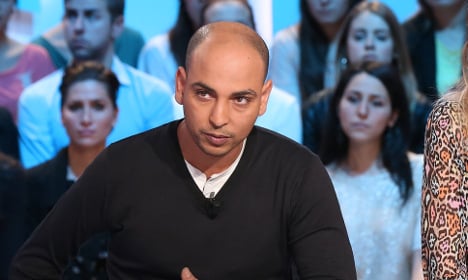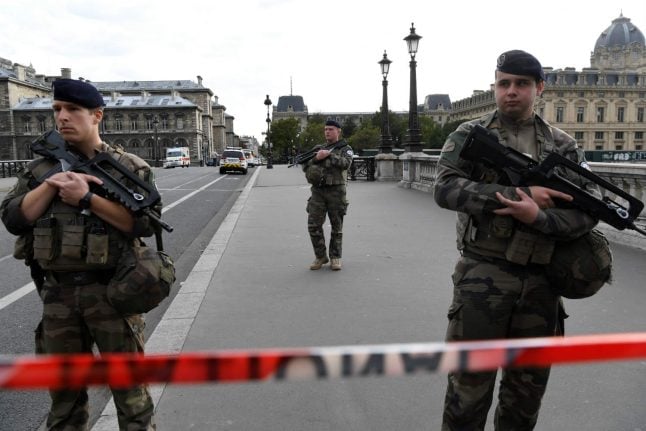He is the brother of jihadist Mohamed Merah, who four years ago killed three soldiers and four Jews, but in his radicalised
family it is Abdelghani who is seen as the black sheep.
Abdelghani Merah has light brown eyes, a shaven head and a surname immediately associated with terror in France, but after losing everything because of his brother's acts he has found a calling: de-radicalising youngsters drawn to jihad.
In an interview with AFP, he says he will never forget the morning in March 2012 when he turned on the television and recognised the street where his brother lived, now crawling with security forces.
It hit him that the man who had been riding around on a scooter, shooting soldiers in the southern French city of Toulouse and nearby Montauban, and then a rabbi and three Jewish children in Toulouse a few days later, was his younger brother Mohamed.
“I rushed to the scene, in a panic. The police thought I wanted to attack them — but I wanted to help them negotiate with Mohamed,” he said.
Mohamed was killed in a firefight with the police after a stand-off lasting about 30 hours.
None of these events took Abdelghani, who is around 40, by surprise.
He accuses his Algerian parents of sowing “fertile ground” for radicalisation and anti-Semitism among his brothers and his sister Souad.
“My mother always said that Arabs are born to hate Jews. And my father thought that Palestinians were right to carry out suicide bombings and that the Israelis got what they deserved.”
In 2003 he said he warned police that “my other brother Kader was calling himself Bin Laden”.
A known Salafist, Abdelkader Merah had been under closer scrutiny by intelligence services than Mohamed and is now facing charges of complicity in his brother's attack, which he denies.
Black sheep
Abdelghani cannot quite say why he never absorbed his parents' hatred like his siblings did.
“I was quite a good goalkeeper, and sought after by reputable football clubs, maybe that is where my openness comes from,” says the man who later lost the use of one of his arms in a motorbike accident.
He endured a series of painful clashes with his family.
First he fell in love with a woman who had a Jewish grandfather, which so revolted his brother Abdelkader that he stabbed him seven times during an argument.
In another incident he secretly filmed his sister saying she was “proud” of what Mohamed had done, for a television documentary.
Abdelghani also wrote a book titled “My Brother, the Terrorist”, to denounce the climate of hatred in his family and to counter growing hero-worship of his brother by young Muslims.
“To them, I did the worst thing possible … I lost all my friends overnight,” Abdelghani said.
“I thought I was relieved after writing my book, but in fact I was depressed. My family was angrier at me than at Mohamed.
“I felt so much pain for them, they didn't realise what they were doing by idolising him like that. (To them) he didn't kill children, but Jews.”
Sinking into despair, Abdelghani broke up with his girlfriend and found himself homeless and jobless as his surname increasingly poisoned his life.
'Breaking the myth'
Then one day, Mohamed Sifaoui, the journalist who helped him write his book, invited him to a meeting in Paris on de-radicalisation where he met with the association Entr'autres (Among Others) working with youngsters drawn to jihad.
He decided to join them.
“Abdelghani brings the truth about his brother's character. He breaks the hero-worship. He shows that political religious extremism comes from within the family, like in Nazism,” said Patrick Amoyel, a professor in psychopathology and founding member of Entr'autres.
“I have something to offer, I can break the myth around Mohamed, tell youngsters that my brother was weak (and) his mind was stolen,” Abdelghani said.
As for the mothers of these lost teens: “I try to comfort them, tell them that what they are doing is essential. If Mohamed had had their love, he would never have become Mohamed Merah.
“I also warn them: if there is a Salafist in the family, you must separate him from the others, because the attacks in Brussels and Paris show clearly the role brothers can play in jihad.”




 Please whitelist us to continue reading.
Please whitelist us to continue reading.
Member comments